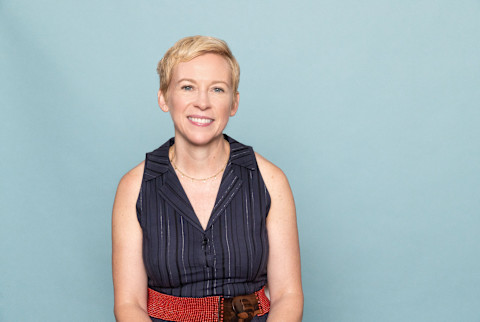The 3 Vitamins We're Most Deficient In, According To An Immunologist

Some people can absorb just the right amount of nutrients from food alone, while others need a little extra help from supplements. Sometimes it's difficult to know, however, which specific minerals you need.
While Heather Moday, M.D., emphasizes the importance of recognizing our individual biochemistry—meaning, there is no "right" answer for everyone when it comes to our own personal health—she has seen a few specific commonalities in her patients. As an allergist and immunologist, Moday treats tons of patients with immunodeficiencies, and she's noticed how her patients' diets and lifestyles affect the health of their immune systems. Particularly, she's seen a similar pattern of certain vitamin deficiencies people experience across the board.
When I sat down with Moday on this week's episode of the mindbodygreen podcast, we discussed the vitamin deficiencies she sees most in her functional medicine practice. Here are the three vitamins Moday sees deficiencies in—plus, the best ways you can get your fill of these nutrients:
1. Vitamin B
Moday sees a lot of B vitamin deficiencies in her patients, despite the fact that we can get all forms of B vitamins (with the exception of B12!) from a variety of plant- and animal-based foods.
Although she's surprised by this deficiency in a vitamin that's so prevalent in our food system, Moday has a couple of theories as to why we're still not getting enough B vitamins.
"I think it's maybe because they're used so ubiquitously in the body, so they're used in our detoxification system, our energy system, our nervous system, and our immune system." Meaning, our bodies heavily rely on B vitamins for multiple functions, and our diets alone aren't enough to keep up with the demand.
The second reason, according to Moday, has to do with none other than gut health. "B vitamin deficiencies tend to go hand in hand with gut problems," she tells me. Some common signs of a B12 deficiency are small intestine bacterial overgrowth (SIBO) and a leaky gut.
2. Zinc
You might not think that zinc is an important mineral for our bodies, but Moday asserts that it's one of our most depleted vitamins. "If I had to pick a deficiency that a lot of people have outside of vitamin D, it would be zinc," she says.
Zinc is important for our immune systems to fight off harmful bacteria and viruses (try popping a zinc cough drop the next time you feel a cold coming on). Zinc also helps create essential proteins in our bodies, making it an overlooked yet vital nutrient that we can't ignore.
So how do we add more zinc to our lives? According to Moday, it's time to splurge on seafood. Oysters and mollusks, in particular, are super-rich in zinc, and they're an easy way to ensure we're getting this essential mineral.
"I love oysters," she gushes. "They're my favorite shellfish."
3. Magnesium
Ah, magnesium. This vitamin is so vital for our health, as our bodies need it for 300 (!!!) biochemical reactions. While Moday is partial to vitamin-rich foods that supply our bodies with the necessary nutrients, she makes sure to personally invest in a magnesium supplement.
"It's an electrolyte that we don't readily get back into our bodies, and we don't find it a lot naturally in foods," she says. "So that one I tend to supplement a lot with."
But before you go to your local health food store to stock your shelves with magnesium, be aware that there are tons of different strains for unique functions of the body. Moday's supplement cabinet includes magnesium glycinate, which has been shown to help with anxiety and sleep. It's also one of the easiest types of magnesium for the body to absorb, and it doesn't have a laxative effect like some of the other strains.
Remember, it's always a good idea to get tested by your primary care doctor before you start your supplement search, and if you do need a little extra help getting your fill of vitamins, be rest assured that there are viable ways to supplement your healthy diets.
